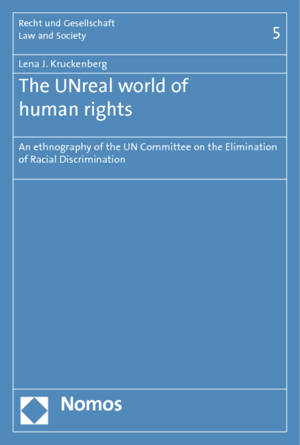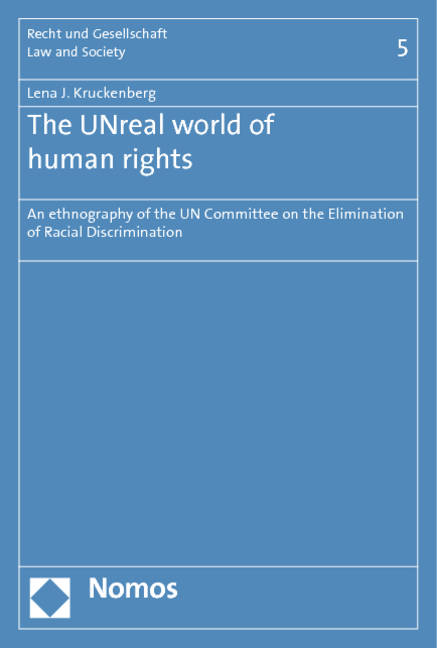
Door een staking bij bpost kan je online bestelling op dit moment iets langer onderweg zijn dan voorzien. Dringend iets nodig? Onze winkels ontvangen jou met open armen!
- Afhalen na 1 uur in een winkel met voorraad
- Gratis thuislevering in België vanaf € 30
- Ruim aanbod met 7 miljoen producten
Door een staking bij bpost kan je online bestelling op dit moment iets langer onderweg zijn dan voorzien. Dringend iets nodig? Onze winkels ontvangen jou met open armen!
- Afhalen na 1 uur in een winkel met voorraad
- Gratis thuislevering in België vanaf € 30
- Ruim aanbod met 7 miljoen producten
Zoeken
The UNreal world of human rights
An ethnography of the UN Committee in the Elimination of Racial Discrimination
Lena J. Kruckenberg
€ 48,95
+ 97 punten
Omschrijving
An UN-real world' breathes new life into the ethnography of international law at a time, when transnational actors challenge its traditional principles. The study investigates the multi-actor relations and micro-practices that constitute international human rights monitoring, through an in-depth exploration of the work of the oldest amongst the UN human rights treaty bodies, the Committee on the Elimination of Racial Discrimination (CERD). As the study focuses on the practices of (re)constructing, interpreting, and evaluating human rights in a quasi-judicial and politicised context, it analyses human rights monitoring from an embedded micro-perspective rather than functionalist macro-perspective. The author traces three groups of actors through their experiences of the 'UN-real world' of one of CERDs semi-annual sessions: state representatives, non-governmental organisations (NGOs), and the members of the Committee. Vivid accounts and detailed analyses illuminate the tacit knowledge and subterranean diplomacy through which international human rights law evolves as a 'gentle civiliser' of states.
Specificaties
Betrokkenen
- Auteur(s):
- Uitgeverij:
Inhoud
- Aantal bladzijden:
- 186
- Taal:
- Engels
- Reeks:
- Reeksnummer:
- nr. 5
Eigenschappen
- Productcode (EAN):
- 9783832966430
- Uitvoering:
- Paperback
- Afmetingen:
- 153 mm x 227 mm
- Gewicht:
- 288 g

Alleen bij Standaard Boekhandel
+ 97 punten op je klantenkaart van Standaard Boekhandel
Beoordelingen
We publiceren alleen reviews die voldoen aan de voorwaarden voor reviews. Bekijk onze voorwaarden voor reviews.











